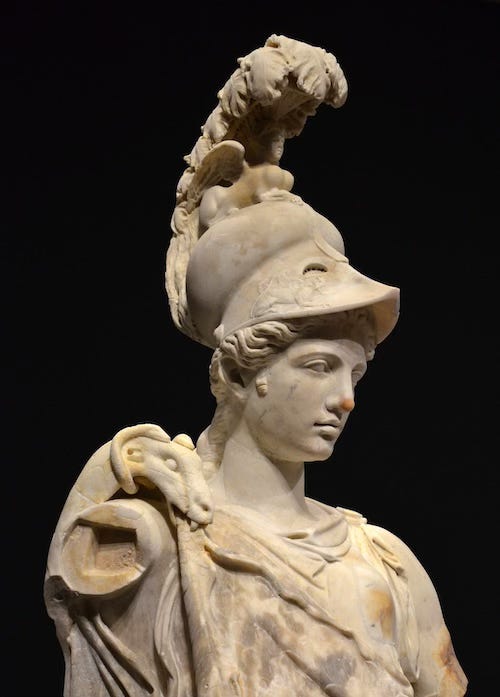Practice like a Stoic: 17, Meditate on others’ virtues
Think about the good character of people you know in order to improve your own
[This series of posts is based on A Handbook for New Stoics—How to Thrive in a World out of Your Control, co-authored by yours truly and Greg Lopez. It is a collection of 52 exercises, which we propose reader try out one per week during a whole year, to actually live like a Stoic. In Europe/UK the book is published by Rider under the title Live Like A Stoic. Below is this week’s prompt and a brief explanation of the pertinent philosophical background. Check the book for details on how to practice the exercise, download the exercise forms from The Experiment’s website, and comment below on how things are going. Greg and/or I will try our best to help out! This week’s exercise is found at pp. 101-114 of the paperback edition.]
“When you want to cheer your spirits, consider the excellences of those about you—one so effective, another so unassuming, another so open-handed, and so on and so on. Nothing is more cheering than exemplifications of virtue in the characters of those about us, suggesting themselves as copiously as possible. We should keep them always ready to hand.” (Marcus Aurelius, Meditations, 6.48)
Our work for the past several weeks has been focused on one main aspect of Stoic practice: reducing the desire for externals. We’ve addressed what Stoics think you shouldn’t desire, but what do they say you should? We’ll begin answering this question this week, but it will also be the focus of the Discipline of Action, which we’ll explore next.
The Stoics encourage us to seek virtuous friends. Aristotle thought that a friendship of virtue was the highest kind of friendship. The Stoics thought of it as the only one deserving that name. To appreciate the contrast, think of how we accumulate more and more “friends” on social media, made up mostly of people we haven’t even met.
Becoming a good person is not just a matter of avoiding desire of the wrong things; it is also a matter of desiring the right ones. Training ourselves not to covet another person’s sexual partner, for example, is most certainly a good thing. But it is even better to train ourselves to be just, kind, temperate, and courageous. It’s admittedly hard to improve on our own; we need help, and we need yardsticks against which to measure our own progress. That is why positive friendships are so crucial in Stoicism: A virtuous friend is, in a strong sense, a guiding light for our aspirations. If you think this is putting too much burden on your friends, recall that sages are very rare, and that people who inspire us don’t have to be perfect.
Notice that Marcus mentions the character of “those about us,” which is a broader category than just friends. While friendship is the obvious place to look, we can also learn how to be virtuous from colleagues, relatives, and even perfect strangers.
And one more thing: Marcus says that “nothing is more cheering” than witnessing people engage in virtuous acts. This is an interesting point, because joy at the sight of virtue is one of the positive emotions that the Stoics thought we should nurture, and that would be present in a sage. So we know that Stoicism is not about suppressing emotions, only about escaping from the destructive ones.
NOTE: This exercise concludes the first cycle, devoted to Epictetus’s discipline of desire and assent. We are now going to take a break for a week and then resume with exercise 18, which will begin our study of the Discipline of Action.





I’ve always liked this technique because I like the idea of role models, and it’s nice to reflect on the virtues of people you know. I think it can also make you more humble and appreciative, more likely to see the good in people even if they have bad traits as well.
This exercise is a nice reminder that pursuing virtue is the goal, and practicing stoicism is the means to the goal. I can look to others who profess other philosophies or practice a religion to see how and where they are virtuous. I am also reminded to consider the example of my father and others who shaped my values in my youth.